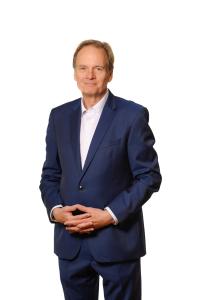Event reports
The host party from South Africa, the Inkatha Freedom Party (IFP), led off the first day. The party leadership informed the participants from Ghana, Ivory Coast, Uganda, Zimbabwe, Kongo, Angola, Tanzania, Senegal, Namibia, Kenya and Mozambique about the party’s history and their election results in May in its headquarter in Durban. The city is the capital of the KwaZulu Natal region, where the IFP traditionally is one of the strongest parties. The ensuing city tour - with a lunch stop for a typical South African braai – gave the participants an impression of that sunny metropolis, including a visit at the Moses Madiba Stadium and the idyllic beachfront.
On the following two conference days the focus was on the topic of political communication. Opened by Dr. Klaus Schüler, General Manager of CDU Germany and Oliver Roeseler, Head of Marketing and Internal Communication of CDU Germany, the first conference day was all about mass media engineering and campaign strategy. Standing ovations were the reaction to Dr. Klaus Schüler’s presentation about the election and campaign strategy of the CDU for the General Elections in 2013. Clear messages in accordance with the core values of the CDU, combined with a strong media presence especially in social media platforms – this strategy worked perfectly in the recent election campaign. But Schüler also emphasized on the fact that this strategy is not a blueprint for any other party. “Each campaign is unique. Learn from the mistakes of your rivals and rely on your strengths”, he recommended.
The tonality of the ensuing panel discussion on inner party democracy was more serious. A lot of African parties suffer from deficits concerning party leadership. A “strong man” is often in power for decades and will not willingly shift it to a successor. The two Namibian participants Libolly Haufiku (RDP Namibia) and McHenry Venaani (DTA Namibia) served as two very different examples for establishing and operating of democratic structures inside a party. Last year the DTA elected Venaani president of the party in an exemplary manner, whereas the RDP is still suffering from a seriously ill president that is no longer fitted for that post. “Establishing effective democratic structures is a difficult process. But we have to try to get our parties more democratic to have a future”, was the conclusion of McHenry Venaani.
Oliver Röseler, Head of Marketing CDU Germany, gave a practical introduction to effective political communication. He pointed out how important time management is and how a detailed campaign plan contributes to that. The participants then had to formulate Message Grids to analyze the perception of one’s party and the perception of the rival parties. Due to that every participant had to present his political message contributing to his countries own circumstances. After the presentations the participants engaged eagerly in a discussion and gave feedback and tips to each other. Additionally, Oliver Rösler made a few recommendations: “Always talk positively about your party and give examples that illustrate your political messages in a way that the voter can understand them easily.” Dr. Klaus Schüler made his point by saying that every party whether in Germany or Africa has to struggle for the voters’ attention and votes and that this is very hard work.
The second conference day was all about how to interact professionally with mass media. CHADEMA from Tanzania and NPP from Ghana served as role-models for media effectiveness. Creating a party-video-channel on the Internet or a monitoring room for pursuing the party’s media coverage were examples of how the two parties deal with media issues successfully. The other participants listened attentively and a lot of questions concerning technical and legal details aroused.
The trickiest part of the conference was the interview training in front of a video camera with Heather Thuynsma, expert for political communication. She gave advice how to improve one’s media appearance by pointing out how important eloquence, body language and personal charisma are for a politician. Seeing the recordings on TV was kind of an eye-opener for the participants and sensitized them for future media performances.
The E-lection Bridge 2014 in Durban held up the tradition of intercontinental exchange. African communication experts exchanged their ideas about campaign strategies and tools across the continent. Christian Echle, Director of KAS Media Africa, was very content with the conference: “The E-lection Bridge proved again how well the exchange between European and African countries can work despite all differences.” He was very confident that the ties between the participants of the E-lection Bridge will contribute to a more professional and successful work of the parties in the field of political communication. He was also very pleased about the establishment of E-lection Bridge in Asia that was presented by his colleague Torben Stephan at this year’s conference.
Eva Limmer











